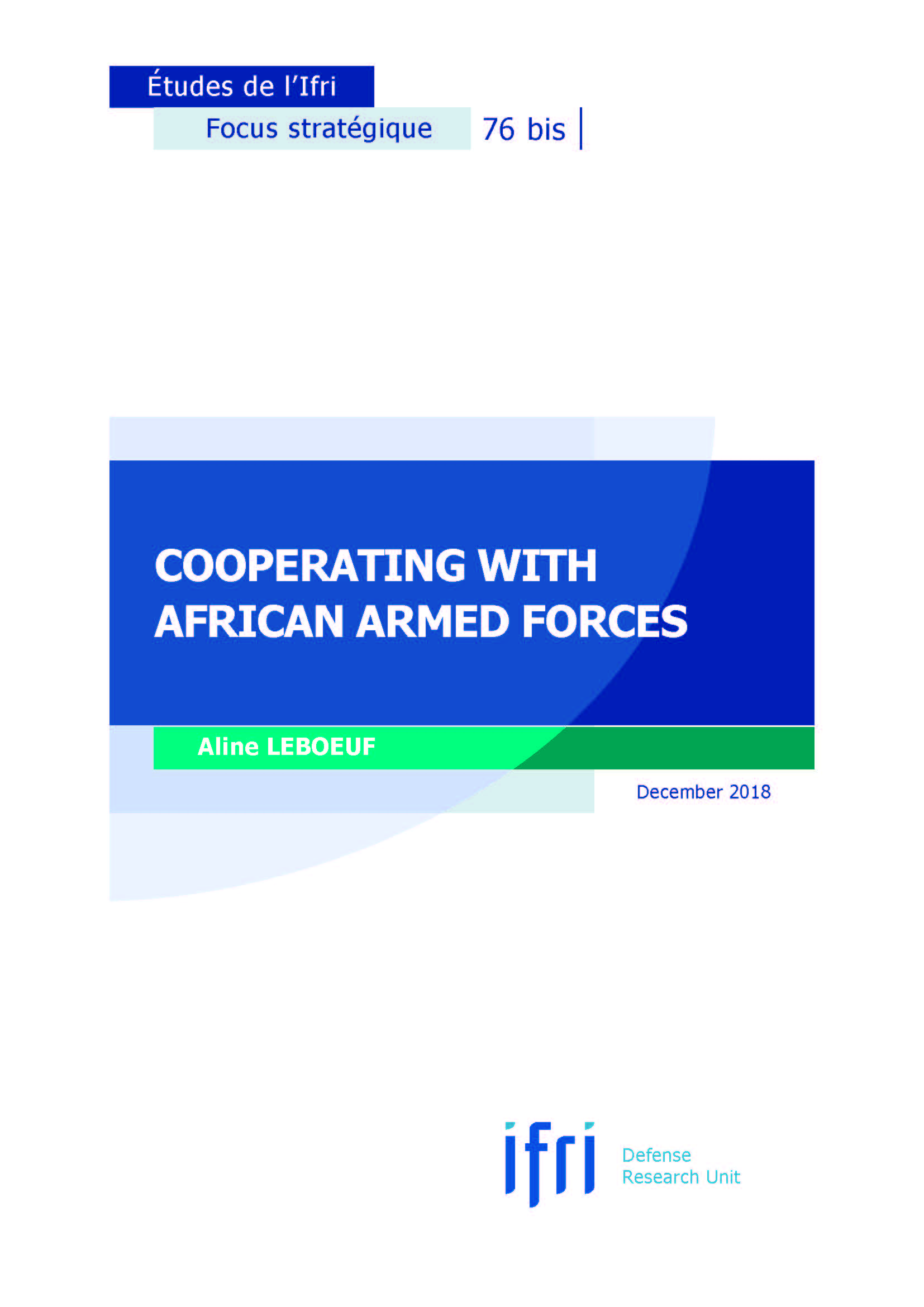Cooperating with African Armed Forces

Nowadays, numerous actors are involved in military cooperation programs aiming to strengthen African armed forces and build special partnerships.
These programs consist of training and the deployment of military advisors, as well as material and financial support to various sub-Saharan African forces. Military cooperation faces a number of constraints, however, due to the “patchwork” nature of many African armed forces and, in many cases, their lack of professionalization. Although military cooperation may sometimes leave advisors frustrated, its impact in Africa is undeniable and perceptible in the long term, making it a highly important strategic tool. Nevertheless, military cooperation is facing serious challenges, and there is still a long way to go. To that end, cooperation will have to be engendered from the bottom up, with the deployment of advisors at the operational level, as well as from the top down, with the introduction of security sector reforms to facilitate the progressive yet sustained changes that African forces need.
This content is also available in French.
Download the full analysis
This page contains only a summary of our work. If you would like to have access to all the information from our research on the subject, you can download the full version in PDF format.
Cooperating with African Armed Forces
Related centers and programs
Discover our other research centers and programsFind out more
Discover all our analysesThe Franco-German Brigade and the Revival of European Defense
One thing has been clear since Donald Trump's return to the White House: the very existence of the European unification project is threatened. Unless it develops a sovereign defense policy to counter the war in Ukraine and the weakening of American security guarantees, the European Union will continue to see its internal cohesion and external attractiveness wane.
Taking the Pulse: Can Europeans Build Their Independent Extended Nuclear Deterrent?
Confronted with a U.S. disengagement and the Russian threat, Europeans are reconsidering their stance on nuclear deterrence. Given the capabilities of the French and British arsenals, can Europe develop an independent nuclear deterrent?

RAMSES 2024. A World to Be Remade
For its 42nd edition, RAMSES 2024 identifies three major challenges for 2024.
A Transatlantic Defense Industrial Base? Two Contrasting Views
The evolving landscape of global defense cooperation has brought the transatlantic relationship between the United States (US) and Europe into sharp focus. As geopolitical tensions rise and the threat environment becomes more complex, the question of how Europe can best ensure its security while navigating its relationship with the United States has become paramount. This double feature report offers two contrasting views on the dynamics of US-Europe defense industrial relations, highlighting the challenges and opportunities that lie ahead for both parties.










